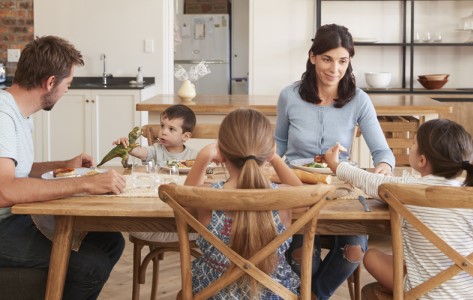From high chair to high school, the advice is different depending on your child’s age and stage of development.

by Mary Ann LoFrumento, MD, pediatrician
The COVID-19 (Coronavirus) pandemic has upended all of our lives. Parents are in an uncertain, yet highly-connected world.
The news is changing constantly, and we feel a great need to be updated every minute from every device and medium. How you manage your own feelings of anxiety and fear in full view of your children is important. They are depending on you to help them understand what is happening.
You can do this. We will get through this by reminding ourselves of some solid parenting basics and by leaning on experts and advice that is tried and true. You know best what is useful for your children as unique individuals.
Kids’ needs differ by age group. Parents of young children need to explain what is happening in a way that does not frighten them or make them feel more anxious or scared. For older children, the challenge is more complicated because they get the news from their own sources. They need to be reassured and have their questions answered.
Guidance by child's age and stage of development:
- Infants and Toddlers (age 2 and under)
- Preschool Children (ages 3-5)
- School-Age Children (ages 5-12)
- Adolescents (ages 12-19)
To All Parents:
We are in this together. Despite your best efforts, your child may begin to show signs of depression or anxiety. If your child develops sleep problems, changes in appetite, clinginess or separation problems, phobias or pervasive feelings of sadness, or if your adolescent shows increased signs of withdrawal or acting out, please call your pediatrician or family practitioner to discuss a referral to a child therapist in your area who is experienced with these problems.
Find a Doctor >
Virtual Visit >
Together, we will get through this. Take time to call your friends and family. Meditate and go outside. Play games with your kids and consider getting a pet. Try to exercise and maintain routines.
It’s OK to feel overwhelmed and need help. If you are feeling depressed, anxious, unable to sleep, having obsessional fears about the virus, or becoming more irritable and lashing out at your kids, please know you are not alone. Reach out to friends and relatives or seek professional help if you feel you need it. We all have to support each other through this very difficult time.